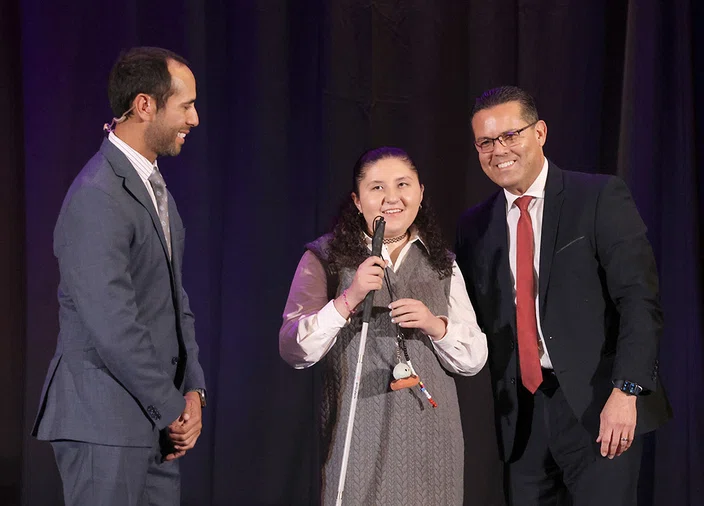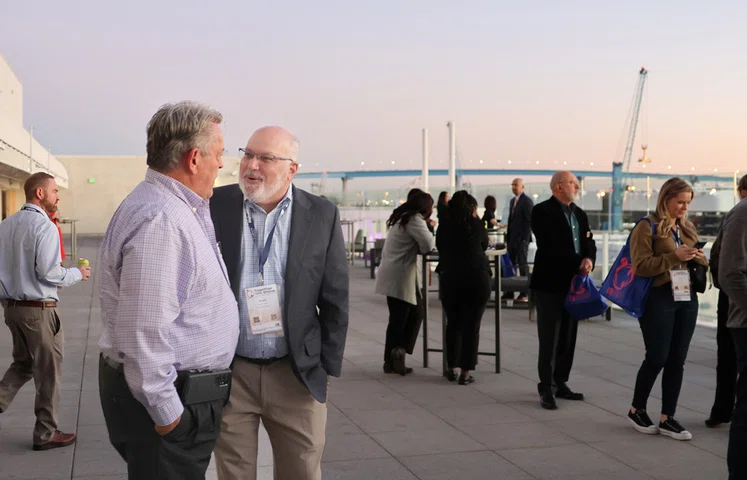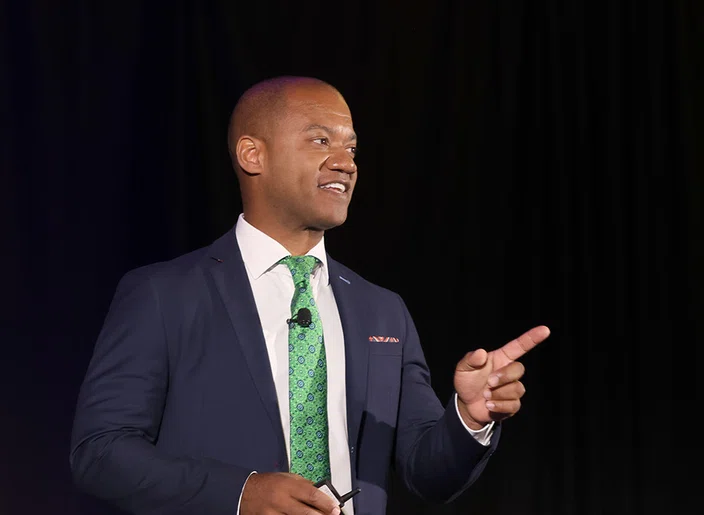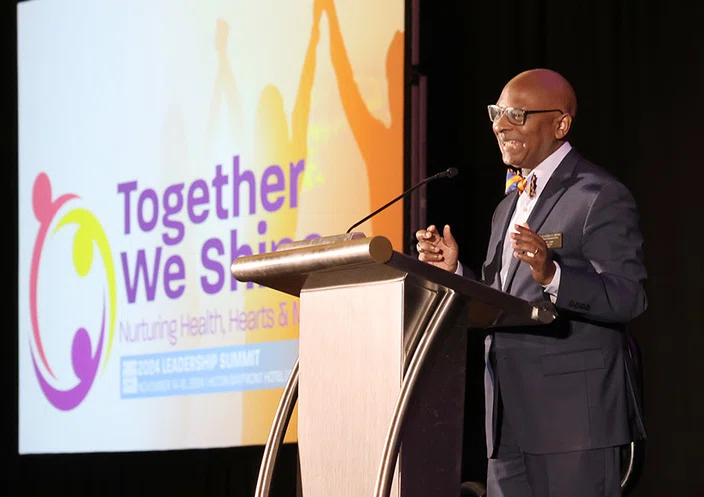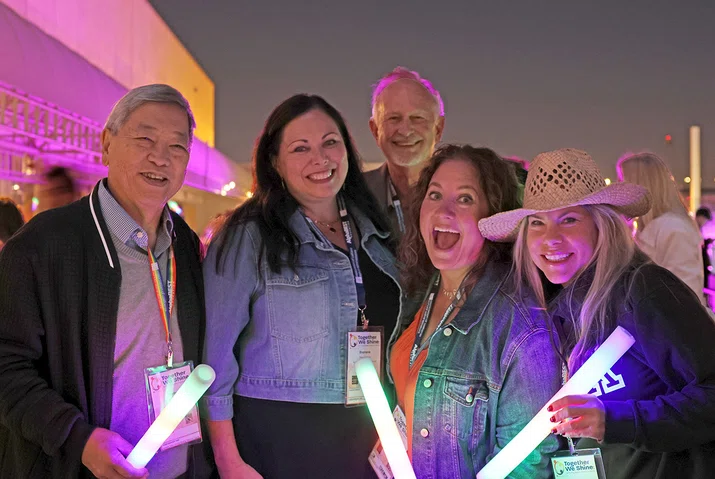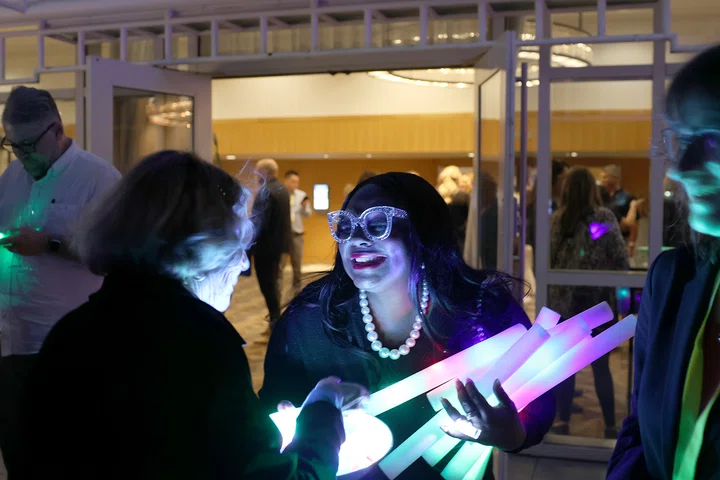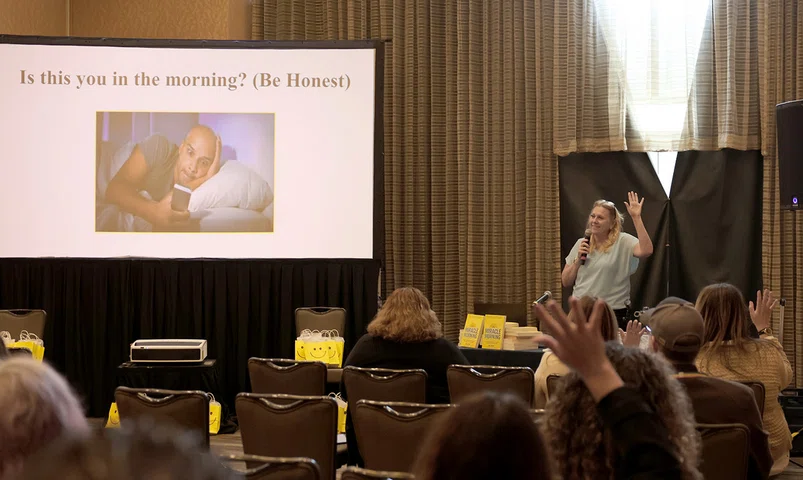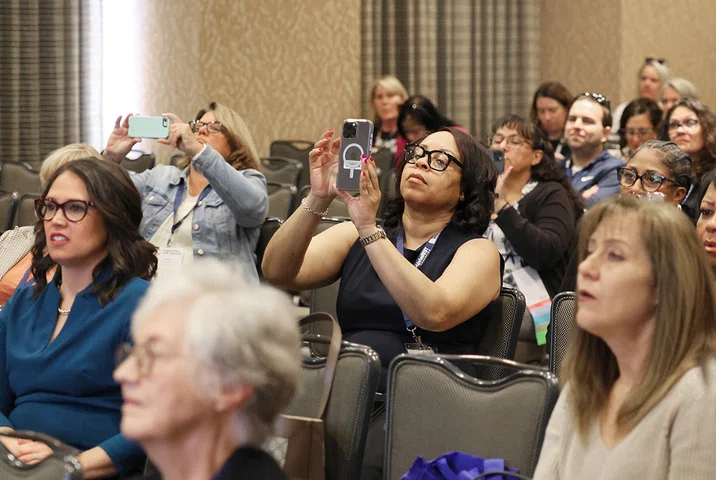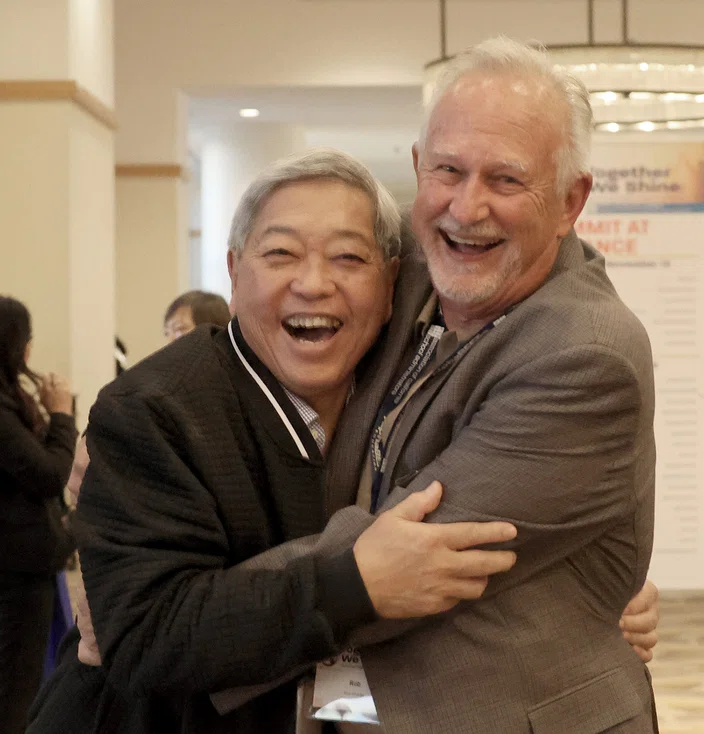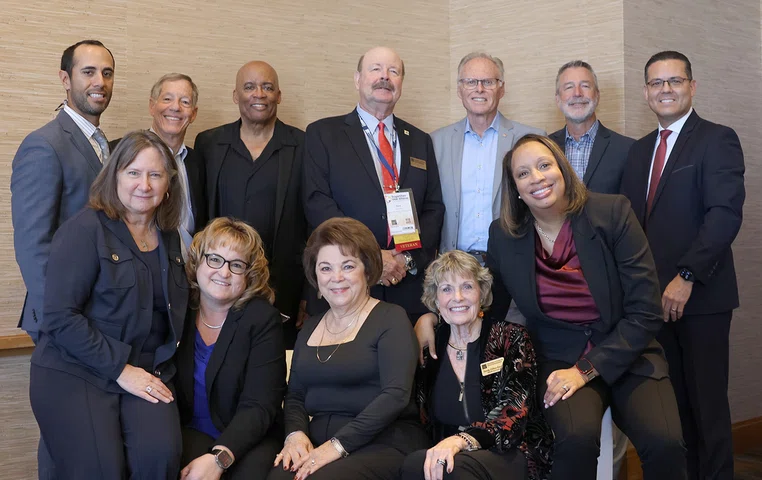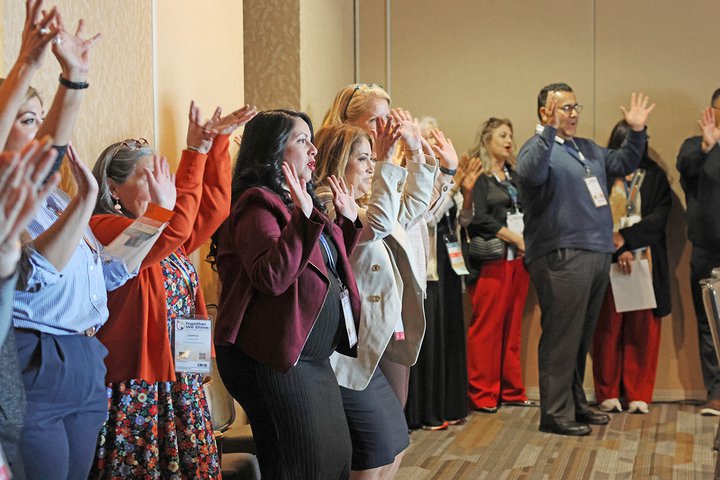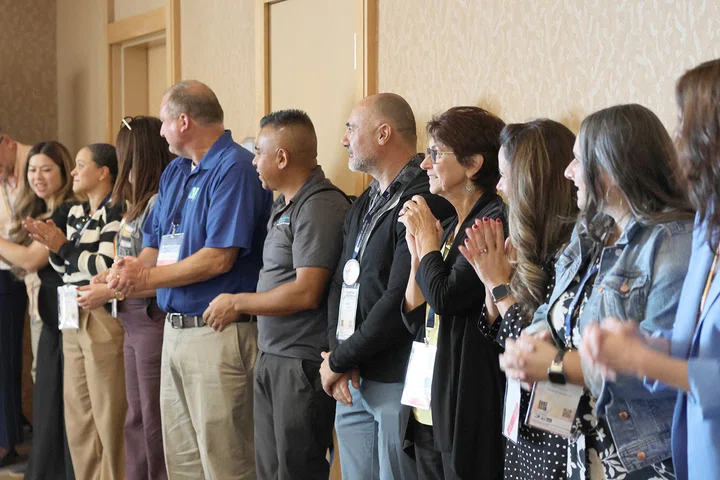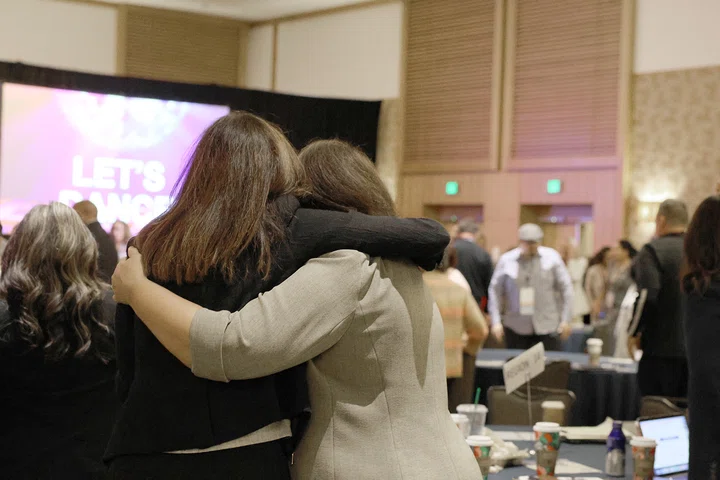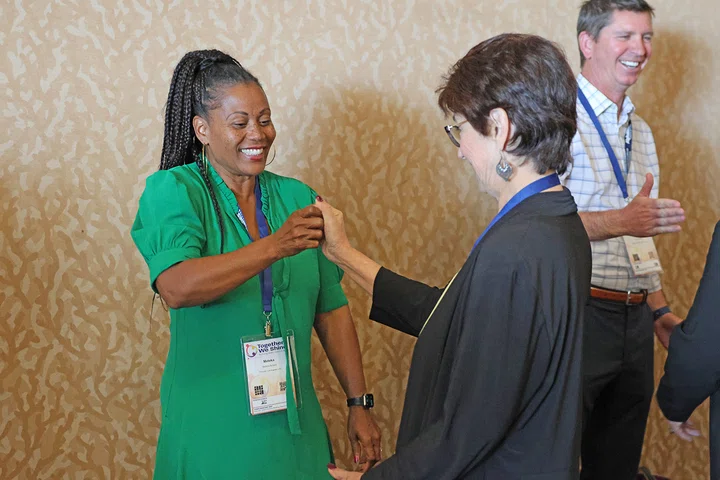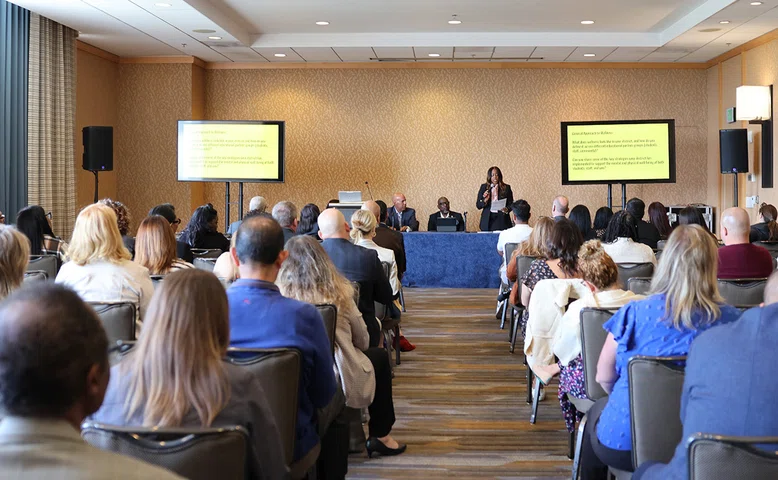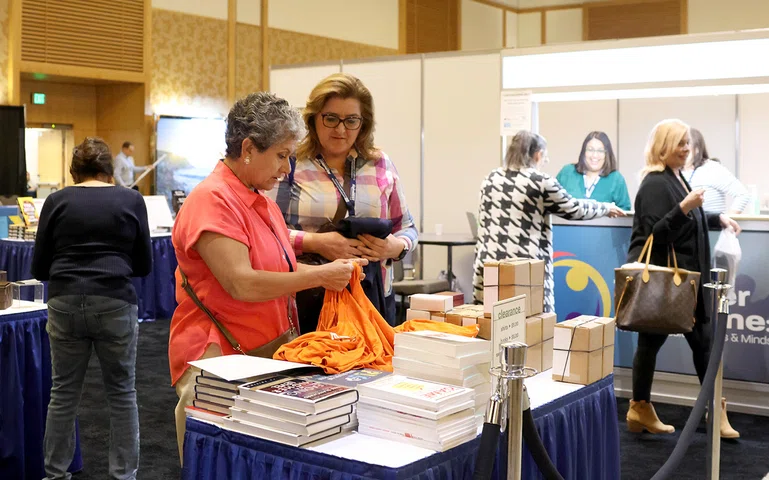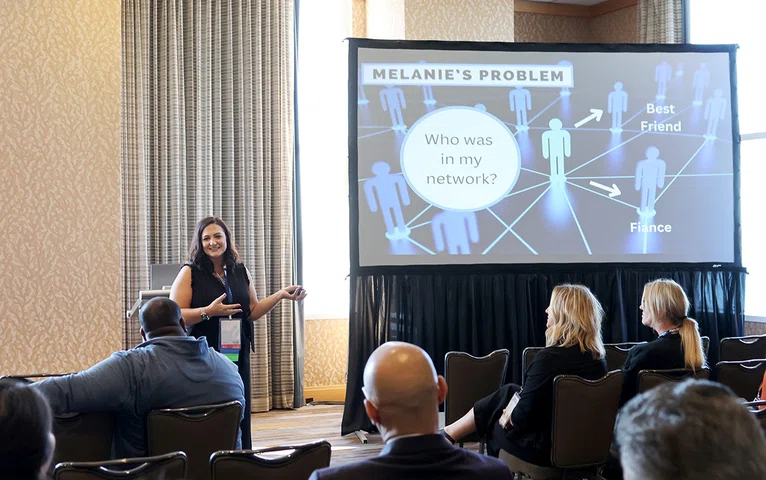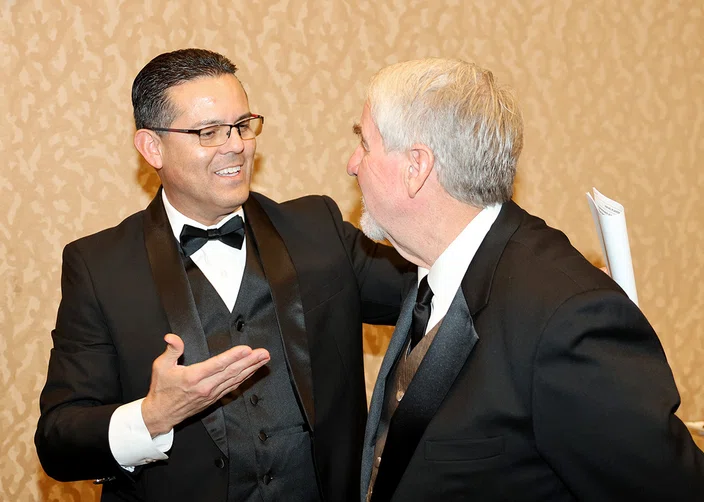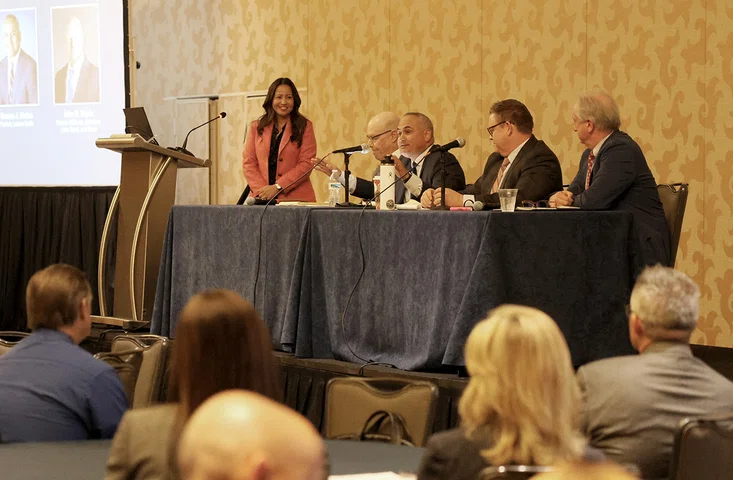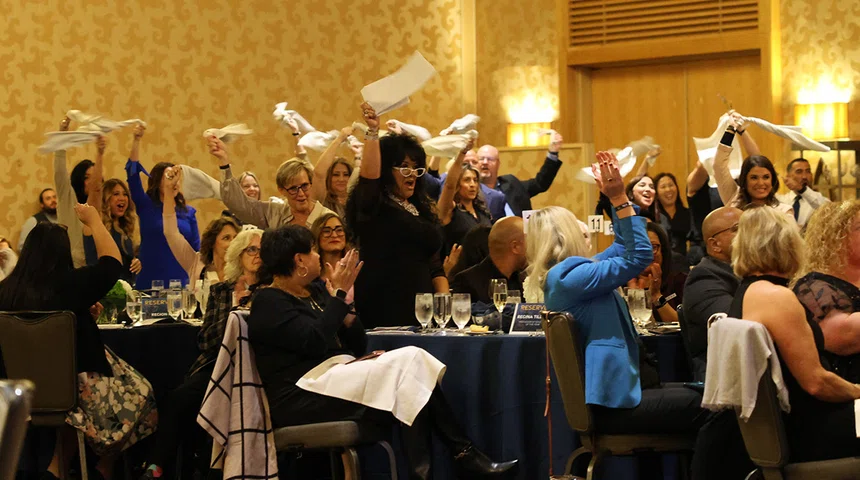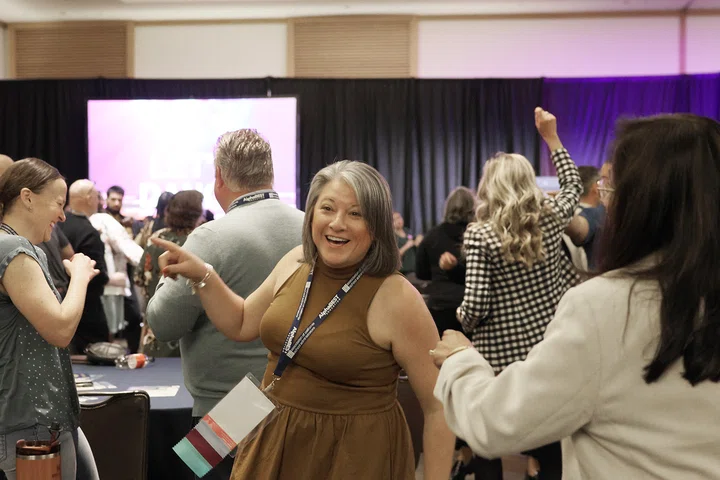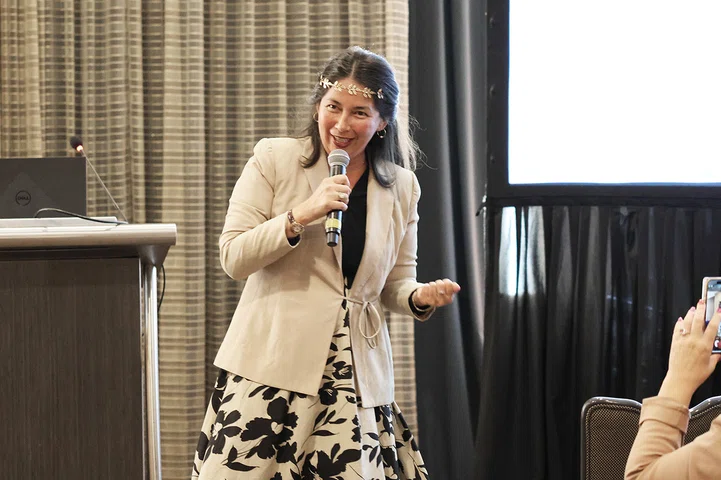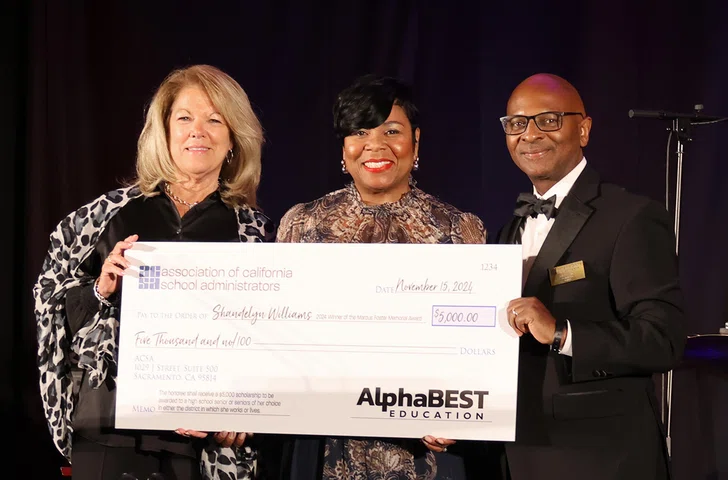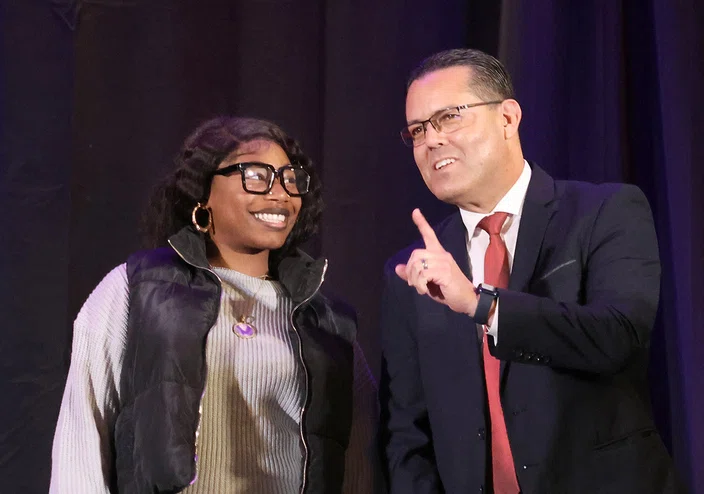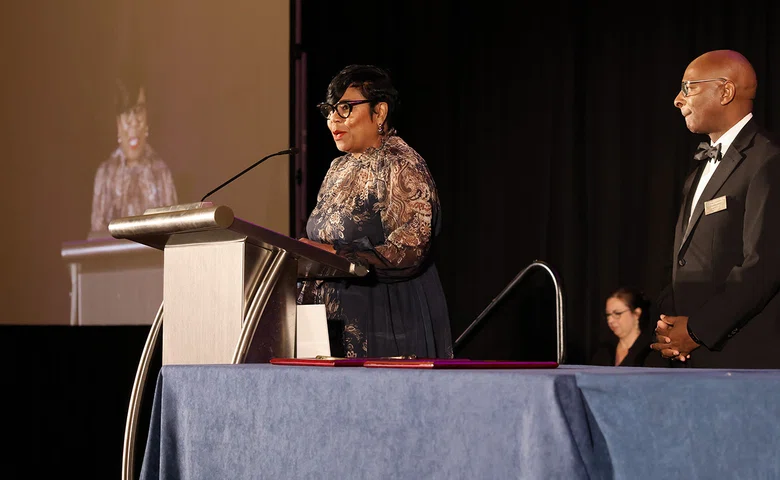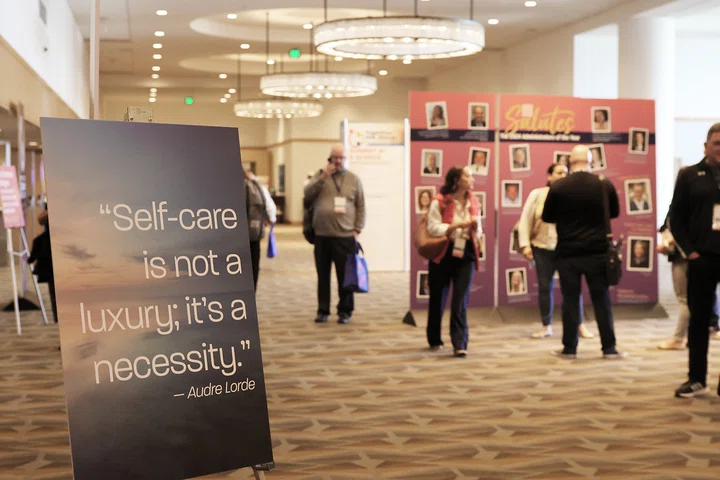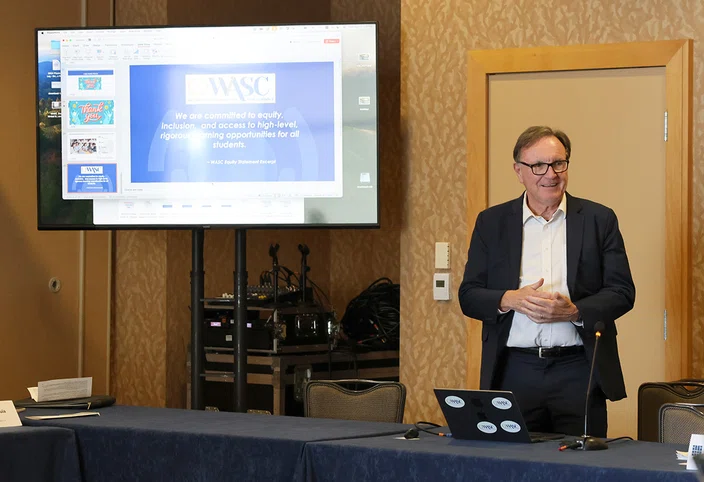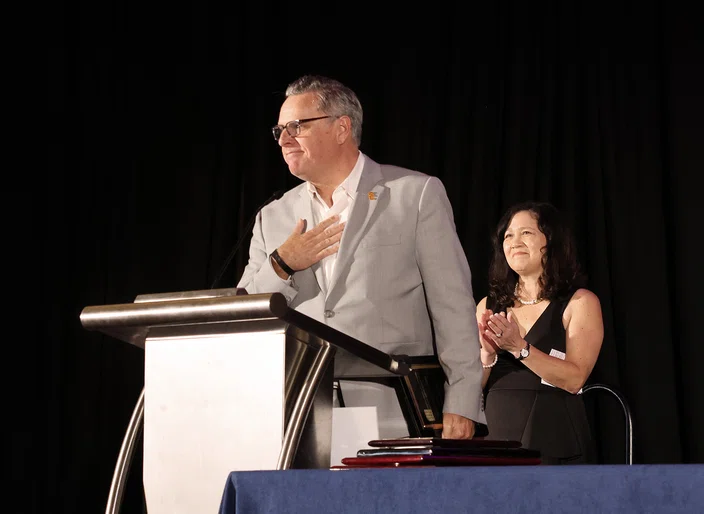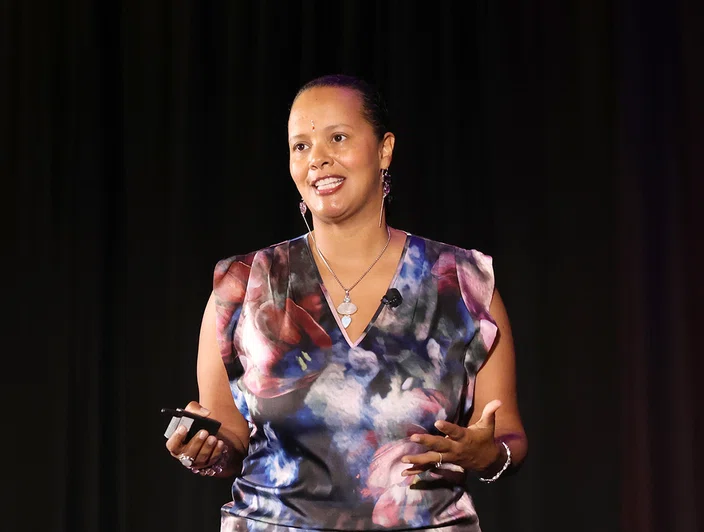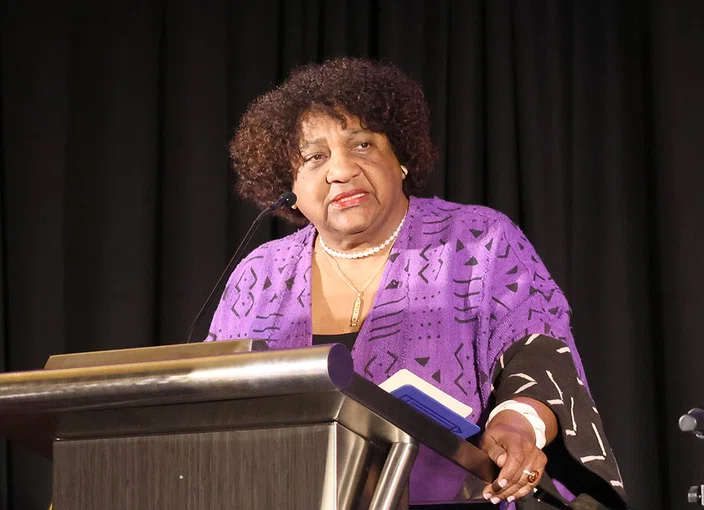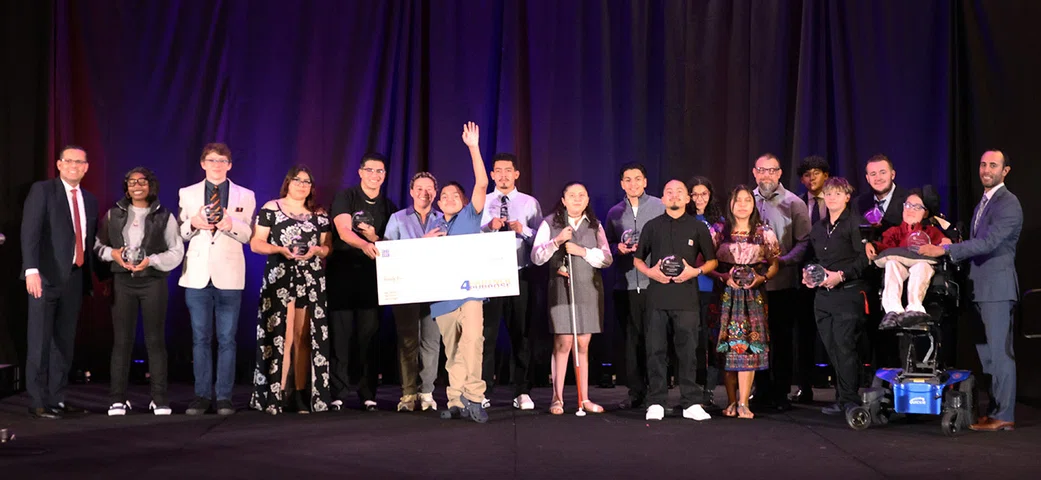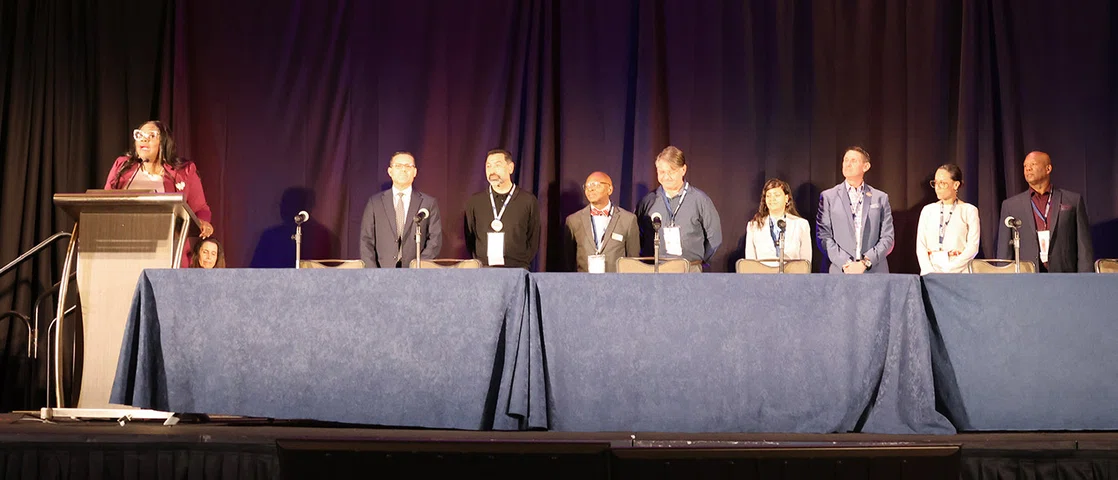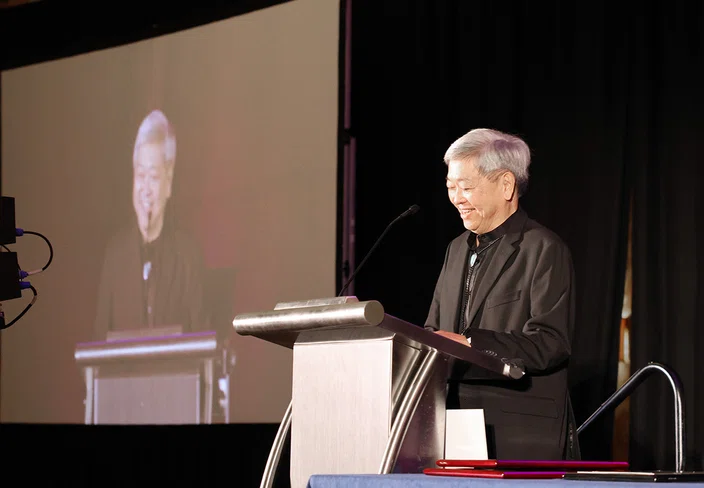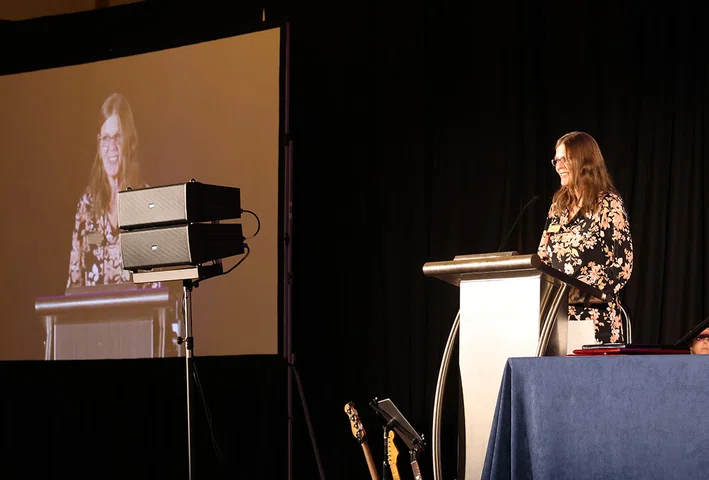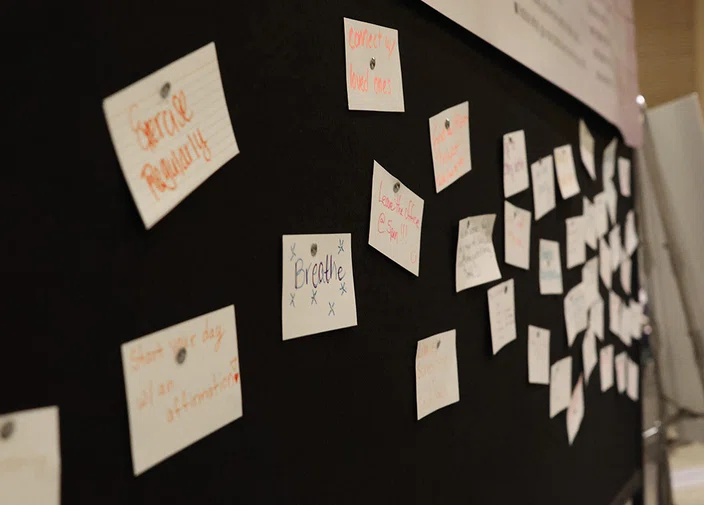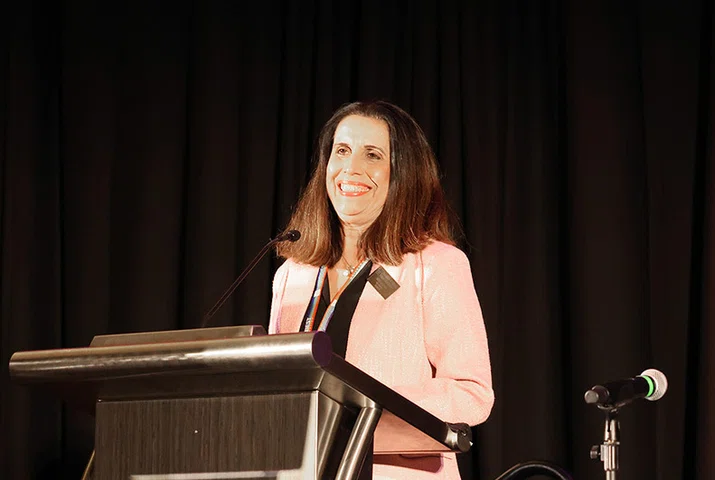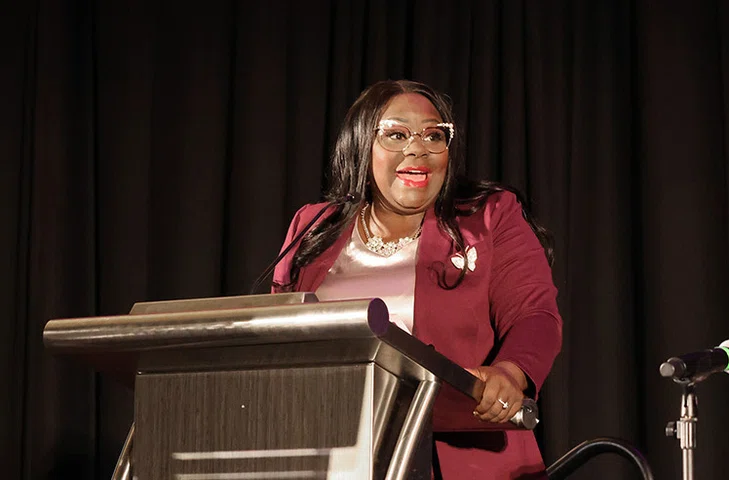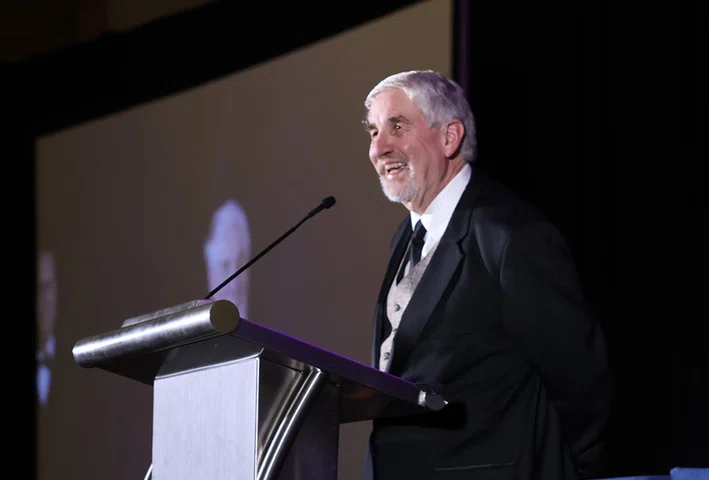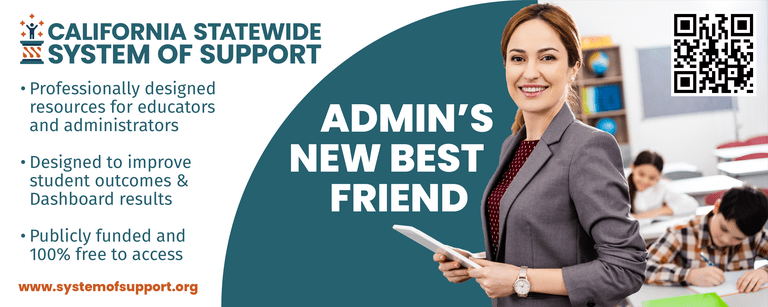Education shines at ACSA Summit
School leaders unite to nurture health, hearts and minds at conference
December 2, 2024
More than 750 school leaders took time to improve themselves and their practice at “Together We Shine: Nurturing Health, Hearts & Minds,” which was held Nov. 14-16 in San Diego.
This year’s ACSA Leadership Summit turned its focus on the mental wellness of educators, recognizing that our schools can only be as well as the adults leading them.
Presenters shared their mental health challenges, how they gave themselves permission to stay home when sick, and how their support systems got them through times of crisis. Between sessions, attendees found time to connect with new and old friends, united in their shared purpose of serving students.
“When we come together and pool our collective passion and determination, we are making a difference for these students,” said ACSA President Rafael Plascencia, during his welcome to attendees. “Together we have made strides, but our work is far from over. We know our students still need us, especially those that face the greatest barriers.”
Attendees had more than 75 sessions to choose from during the two-and-a-half-day event. Alongside critical school leadership topics like student engagement and academic achievement, attendees went to sessions with titles like “Care for Yourself, Care for Others” and “Navigating Administrator Anxiety.”
Deanna Baczek, who recently retired from Ventura USD, said she was encouraged to see so many newer administrators at the conference learning how to balance self-care with school leadership.
“You can very easily burn out, we’ve seen that happen — people that only last a very short time,” she said.
Principal Danielle Saldavia with ABC USD also appreciated the focus on leaders.
“Oftentimes, when you work in a district, you’re always thinking about others and designing professional learning for others,” she said. “But I do feel like this is the one time of year where I get to think about it through my lens and say, OK, what do I need as a leader to be the best person I can be for my school site.”
Marlon Styles
During the opening general session on Thursday, the award-winning former superintendent of Middletown City Schools Marlon Styles encouraged attendees to connect with others through personal stories.
“I believe that if we share our story that we can inspire others to take action,” he said.
Styles told his story of being a Black male student who was never asked one question by someone who looked like him: What do you want to be when you grow up?
That experience drove him to become an educator and create The Admiral Squad, an affinity group of Black male educators tasked with connecting with students, especially Black and brown boys. The group visited campuses wearing baggie purple hoodies and offered fist bumps to students.
“They had the freedom and more importantly the permission across the whole school community to go have impact,” he said.
Styles challenged attendees to write out their own stories and authentically share them with others within the next 60 days. He also invited attendees to get up and dance to express themselves.
“Self-care is self-expression,” he said.
Shirley Weber
California Secretary of State Shirley Weber spoke to attendees, just 10 days after the General Election in which Donald Trump was elected to a second term as president of the United States.
As the chief official in charge of elections in the state of California, Weber shared that people had reached out to her after the election, asking about things like Trump’s pledge to dismantle the U.S. Department of Education.
“I had people call me the day after and said, ‘Now what’s going to happen? What are you going to do?’” Weber said. “I’m going to do the same thing I did the day before and the day before that — I’m gonna do the work.”
She told school leaders to keep doing what they know needs to be done to change the lives of students.
Tovi Scruggs-Hussein
During the closing keynote on Saturday, school transformer and healer Tovi Scruggs-Hussein recognized the interconnection between health, hearts and minds reflected in this year’s Summit theme.
“I think it’s huge that ACSA has taken on a mission and purpose with this year’s particular Summit that allows us to look at the adults, allows us to look at our well being,” she said. “It is absolutely critical because our system is only going to be as well as we are, and we are mostly exhausted.”
Scruggs-Hussein began her keynote by leading attendees in a brief meditation: “Release the shame that you may feel when resting. This shame does not belong to you.”
Here are a few other moments captured at this year’s Summit.
“I am grateful for my ACSA family.” Summit Planning Committee Chair Patricia Brent-Sanco invited the Leadership Summit planning committee on stage to recognize their efforts in putting together this year’s event. She then thanked her ACSA family. “Individually and collectively, you have enriched my life, and I thank you.”
“Ethnic studies for what?” Allyson Tintiangco-Cubales, a distinguished professor in the College of Ethnic Studies at San Francisco State University, spoke during the Women’s Leadership Luncheon about “sisterhood, solidarity and saving lives” and the goal of ethnic studies, which will be a graduation requirement in California schools starting in 2025-26. “Ethnic studies saves lives,” she said.
“Our school leaders need to eat.” Former teacher and lead facilitator at The Teaching Well Salina Mae Espinosa-Setchko spoke during the Equity Luncheon, encouraging attendees to do the inner-work that supports their outer work. She acknowledged that the education system is designed to burn people out and asked school leaders if they struggle to take time for basic human needs like using the restroom or eating lunch. Espinosa-Setchko shared The Teaching Well’s mission, which is to “support our beloved adults in the system so they can keep doing their dream.”
“It matters to address the family unit.” Amy Yamamoto Callahan, director of advocacy, school and community impact at the Cook Center for Human Connection, shared information from the recent U.S. Surgeon General’s report “Parents Under Pressure,” including a statistic that 41 percent of parents say most days they are so stressed they cannot function. She said stressed caregivers manifests in students through things like chronic absenteeism and dysregulated behaviors. “We have something we can do as leaders — we need a fundamental shift in how we value and prioritize parents’ well-being,” Yamamoto Callahan said in the session “Athenas of Happiness,” which featured multiple school leaders sharing their district goals that focus on mental health initiatives and fostering deep human connection.
“Inside I was not OK.” During Friday’s general session, ACSA Vice President Rene Rickard described a stressful principalship that caused her to experience anxiety and dread. With the support of her superintendent, her doctoral cohort, and friends and family, she was able to relearn how to be present and feel joy. “Everybody around you is here to help you,” Rickard said. “Asking for help is not a weakness, it’s a sign of strength,” she said. “You have more love and support in your life than you know. Tap into the love and support.”
“If I don’t do stuff in the morning, it ain’t happening.” In a session titled “How to Have a Miracle Morning,” presenter Barbara Sorter, executive director, Special Education, Riverside County Office of Education, shared research from Hal Elrod’s book “The Miracle Morning” and how educators can incorporate six wellness practices (silence, affirmations, visualization, exercise, reading and scribing) into their routine before they leave the house.
Quick Takes: What was a standout session you attended at Leadership Summit?
“Ed Branding: How to Build Leadership with Social Influence” presented by Renae Bryant and Heidi Baker
“The key takeaway is not only the branding for yourself but utilizing your different networks to boost and promote your school and find additional resources. ... I have all things non-traditional — a continuation, an independent study, and a middle college high school, so it definitely gave different ways to promote the school(s) so there’s more awareness in the community.”
Benisha Carr, Principal, Beaumont USD
“Artificial Intelligence: Practical Uses and Organizational Guidance” presented by Antonio Romayor Jr.
“Antonio really broke it down. I think there’s a lot of efficiencies we’ll be able to gain by using AI. For my teaching staff ... if we can rapid fire through that preparation time and then allow them to be great at the instruction they do, then to me that’s a win because student outcomes go up.”
David Cline, Principal, Empire Union School District
“On Track to College with Success Coaches” presented by Linda Kaminski and Dayna Mitchell
“In my district we’re dealing with the same issue of high school students dropping out. [Azusa USD] hired a coach that meets with students individually and then works with the teacher of those students. I thought it was helpful and practical.”
Anthony Ortiz, Assistant Superintendent, Colton Joint USD
Keynote Marlon Styles
“He presented some good strategies that we could definitely take home and do with our own staff. That messaging of the impact that we do have — sometimes we’re so busy that we take it for granted. It’s a great reminder to pause and say yes, we are making a difference in the lives of our students.”
Mayra Lozano, Director of School Services for ABC USD
Superintendents panel
During Leadership Summit, ACSA President Rafael Plascencia moderated a panel with superintendents titled “Nurturing Health, Hearts and Minds: A Panel of Leaders’ Stories.” Here are some takeaways from each of the leaders on supporting mental health for their staff, students and themselves.
Set the tone. (Roxane Fuentes, superintendent, Berryessa Union SD) Fuentes said that through retreats on neuroscience and mind-body practices, staff are encouraged to understand their own triggers so that they can set a calm tone for the children they are receiving. “We remind everyone across our system ... to be the thermostat and not the thermometer,” she said. The district also identifies “strategy keepers” who have excelled with mind-body work and can provide this support to staff and students.
Listen to your body. (Terrence Davis, superintendent, Banning USD) Davis shared that he had to stay home on a recent Friday because he needed rest. “Ten years ago, I would have never done that,” he said. “So the pandemic really changed my mindset about how I take care of myself and how I have to take care of others around me so that we can do the work every day.” Davis also shared how he’s learned to not take himself so seriously, even as he does the serious work of serving students.
Be intentional. (Shawn Tennenbaum, superintendent, San Benito High School District) Wellness is modeled consistently in the district, from cabinet meetings to professional development offerings that let all staff members practice wellness. “We believe wellness has to happen — it’s not a may happen — it has to happen for us to be healthy to be able to support our students, our staff and ourselves.” Through efforts like regular listening sessions with principals, site leaders have scheduled opportunities to connect with district staff to share their support needs.
Find the right partners. (Gudiel R. Crosthwaite, superintendent, Lynwood USD) Crosthwaite acknowledged his own trauma and that sometimes in schools we have “Broken adults trying to build up kids.” “We have to look in the mirror and ask ourselves, ‘What do we need to do differently?’” he said. Since mental wellness is a skill school leaders may not have, his district partnered with Mind-body Awareness to teach breathing exercises and how to listen to the body.
Design for belonging. (Gloria E. Ciriza, county superintendent of schools, San Diego COE) Ciriza shared thoughts on making sure staff and students have agency and meaningful purpose in their work. Within ecosystems of care, people should be able to express care, be challenged, share power and acknowledge voices that matter. “Each and every one of you has the power to shape and influence the experiences that your staff feel each and every day,” she said.




